Of the half a dozen teams competing in the Joe McDonagh Cup this year, there is no doubt that Meath enter this year's edition as rank outsiders.
The competition could probably, before a ball is thrown in at least, be split in two.
Antrim and Offaly are strong favourites to make the final – the McDonagh finalists will have home advantage in the All-Ireland preliminary quarter-finals – with Kerry, Carlow, Down and Meath next in line.
Given Meath’s relegation from 2A in the league – and defeats to the Kingdom, Barrowsiders and the Mourne County along the way – the Royals have it all to do to ensure they are a competitive outfit over the next six weekends (there is a rest weekend between rounds 3 and 4).
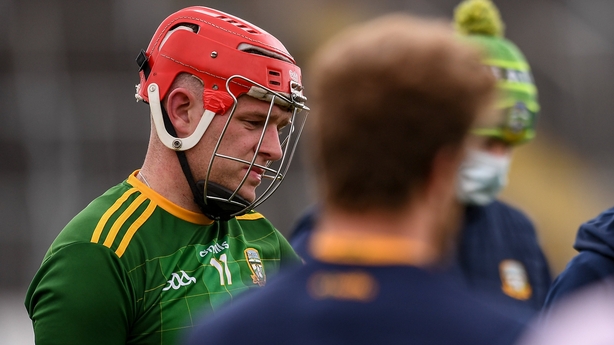
First up is a home tie with Carlow next Saturday, a pivotal fixture for the Royals. It comes less than four weeks after a narrow defeat to the same opposition in the final league outing, a game that was in effect a shootout to remain in the division.
It would be an opportune moment to exact revenge of sorts.
In an inter-county career with the Meath hurlers that began in 1987 and a stint in charge as manager that saw the Royals claim the Christy Ring Cup and participation in the Leinster championship for the first time in 13 years, Martin Ennis has been involved in most of the high points in the county’s recent history.
Ennis was part of the Meath team that won the All-Ireland B title in 1993 and, theoretically at least, were just three games away from claiming Liam MacCarthy that summer as success in the secondary competition thrust them into an All-Ireland quarter-final tie against Antrim, where an 18-point defeat was their lot.
The 90s is fondly remembered by those within hurling circles in the county. As well as All-Ireland success, there were away wins over Wexford and Waterford, some close encounters in the Walsh Cup and decent outings in the Leinster championship.
In 1994 they took out Westmeath and Carlow before a respectable showing to Kilkenny. Twelve months later they were pipped by a point by Carlow and in 1996, in Ennis’ last outing for his county, a formidable Offaly side laden with All-Ireland winners laboured past them by six points.
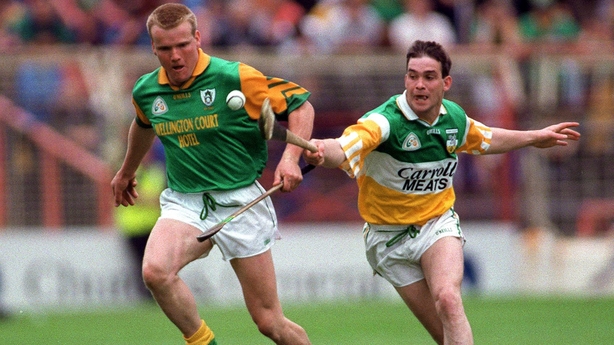
That would be as good as it got as the Faithful County showed no mercy after that scare, winning the 1997 and 1998 encounters by a cumulative margin of 53 points.
After that, there were battles against the likes of Carlow, Westmeath and Laois, with the 2003 win over the O’Moore County a noted success, before pulling out of Leinster in 2005.
The Nicky Rackard Cup spent 12 months in the county after victory in 2009, and slowly but surely they built themselves back up. With Ennis now at the helm, a Kehoe Cup was secured in 2015.
A year later he steered his county back into the Leinster championship after a 13-year absence following a Christy Ring success that had more twists and turns than a snake with an itch.
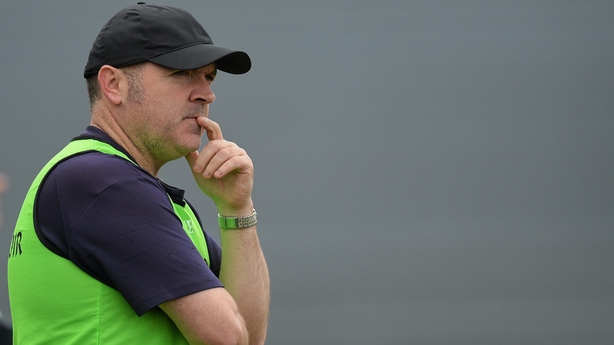
Having won away at Kildare and London, the men in green and gold arrived into the final battle-hardened, but very much as underdogs against Antrim.
The plan was to stay in the game for as long as possible and take the game to the wire. Having found themselves six and nine points down at different stages, the approach felt like it was being tested to the extreme, but belief and momentum went the way of the Royals in an absorbing second half.
In the final minute of the contest, Sean Quigley plundered a goal to level the tie. Deep into injury time, he whipped over a score to seal victory for the Royals. Or so they thought.
While the players celebrated, those in the press box were totting up their own green and white flags and it didn’t tally with the Croke Park scoreboard. TG4 viewers were also left scratching their heads when Niall McKenna’s 63rd minute point was incorrectly added to Meath’s side of the ledger.
The upshot was a replay, though the GAA’s initial request for the game to take place in Newry the following Saturday was quickly rebuffed.
"Whatever chance we had of beating Antrim, it wasn’t going to be on a tight pitch," Ennis told RTÉ Sport. "Physically we weren’t at the same level, but we felt we had the legs on them in Croke Park."
Aside from the emotional high of celebrations, there were logistical issues to iron out. Hero from the drawn match Quigley had to return from America, other players also rearranging best laid plans.
It would all prove worthwhile.
By the time referee Cathal McAllister blew his whistle for the final time after extra-time in a frantic replay, it was the underdogs who were left standing, and this time there were no complaints.
After 160 minutes of action, 12 goals – nine of which came in the replay – and some contentious calls, substitute Stephen Clynch’s 93rd minute free proved to be the decisive score.
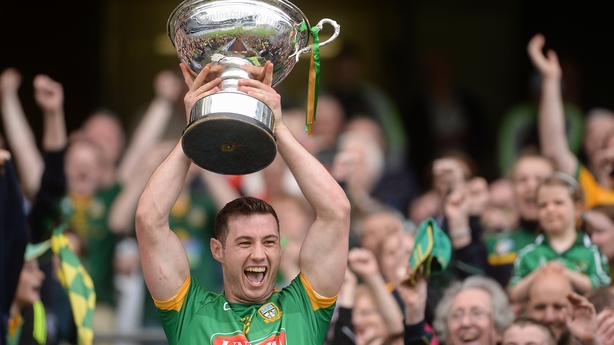
Skipper James Toher summed up the feeling in his acceptance speech.
"I really am lost for words, to be honest," he said. "I actually don’t know what to say."
For manager Ennis, it was deep satisfaction that he led his team on the journey he had sold
"That was the pinnacle of what we were trying to do as a management team," he recalls.
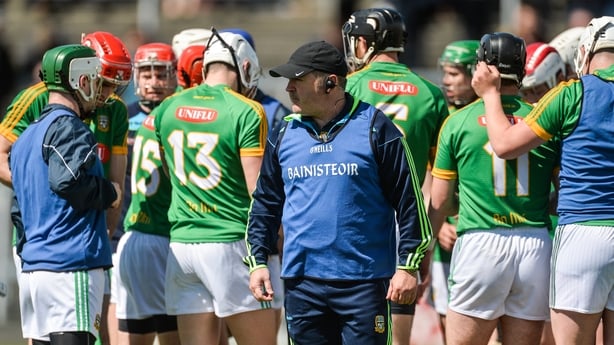
Clynch retired a year later after 15 years soldiering in a Meath jersey. The career highlight was easy to pinpoint in an interview with RTÉ that year.
"It was the very same as someone winning Liam MacCarthy for us. That's all we can win, and it was our Holy Grail at the time."
The step-up to Joe McDonagh is a significant one. Sandwiched either side a second Christy Ring title in 2019, the Royals lost all nine games, with an average margin of defeat of over nine points for those two campaigns.
Last year’s McDonagh Cup was divided into A and B given the pandemic. Meath upset Kerry in B, but while three teams finished on two points each, points difference saw the Kingdom top and the Royals bottom.
Nick Weir’s side however finished on a high with a relegation play-off victory, Jack Regan’s haul of 0-17 just a point short of Kildare’s total on the day.
Remaining in the second tier this year would be no mean feat, with Paddy Conneely’s injury and Keith Keoghan's decision to step away adding to the challenge.
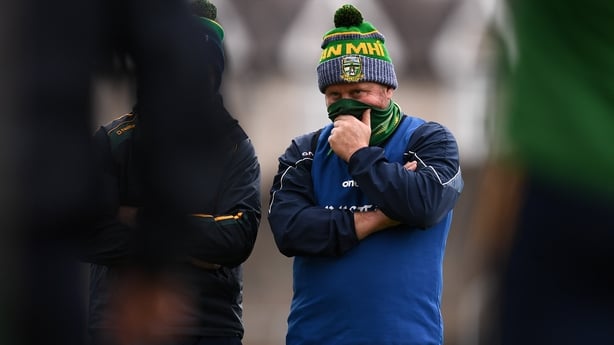
Antrim and Offaly come into it on the back of Division 1 experience, while Down topped 2A in the league before falling in the decider to a Davy Glennon-inspired Westmeath.
Carlow and Kerry are the sides more realistically swimming in Meath’s waters, but league form doesn't paint the rosiest of pictures, with a 23-point loss in Tralee and a home defeat to Barrowsiders, albeit by a goal.
The scheduling has thrown up what many might consider their most winnable game first up.
The difficulties in a county where football dominates are obvious. Christy Ring-winning captain James Toher (Trim) and Gavin McGowan (Ratoath) departed for the football panel, while a number of players on Andy McEntee’s squad are among the best hurlers in the county.
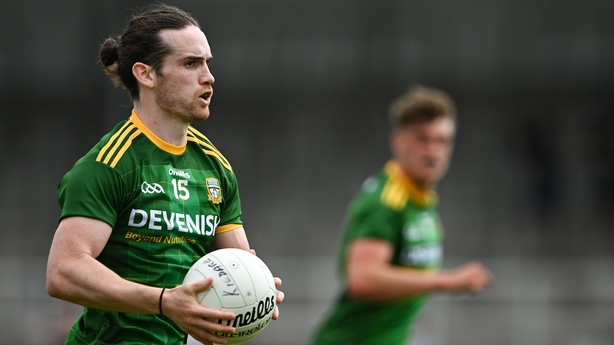
Cillian O’Sullivan, better known as a dynamic wing-forward with the footballers, has been a powerful influence around the middle of the field for a Kiltale side that has reached eight county hurling finals in the last decade and completed five-in-a-row in 2018.
The panel has undergone a number of personnel changes for 2022, but there is still a strong core within the team.
Jack Regan, top scorer in 2A and last year’s Joe McDonagh, will be the main man in attack, ably assisted in the forward division by Damien Healy, Adam Gannon and Mikey Cole.
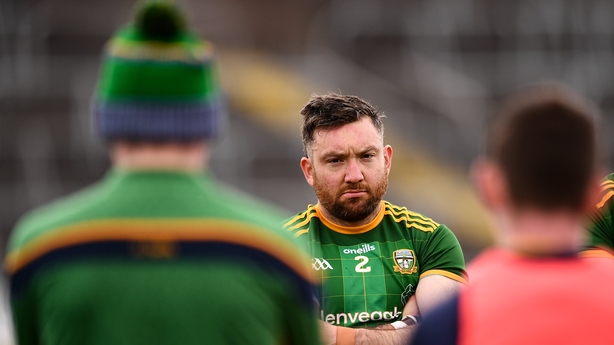
Sean Geraghty is a key defender with Darragh Kelly the fulcrum at number six. Twenty years after first being called into a Meath hurling panel, the evergreen Mickey Burke remains as committed as ever and likely to feature around the half-back line.
A county that boasts just 12 senior hurling clubs is dependent on a strong club championship, but a deeper look shows some green shoots.
The latest GAA annual report shows there are 44 adult hurling teams in the county, similar to Antrim (49) and Offaly (46), and far ahead of fellow McDonagh sides Down (22), Kerry (24) and Carlow (20).
In terms of youth hurling (U12 to U-19), Meath leads the McDonagh contingent by some distance with 192 teams, boasting more than Laois (149) in the process.
It’s a similar story at the number of U20 hurling teams, where their tally of 17 exceeds the fellow McDonagh competitors and is just five short of Waterford’s tally.
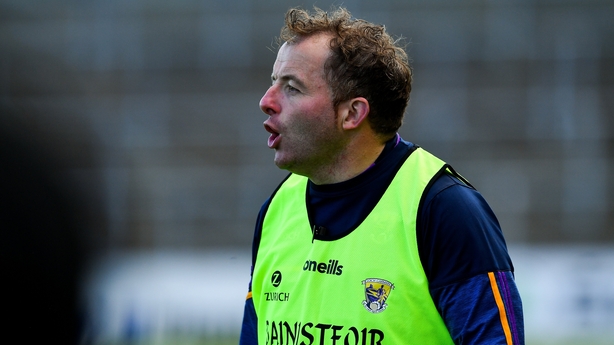
Last year the Under-20 hurling title was claimed and the county board is doing its bit to bolster management set-ups.
Seoirse Bulfin, the highly renowned coach who assisted Davy Fitzgerald in Waterford and Clare, was added to the backroom team during the winter, with Clynch also in situ, while a number ex-players have taken up management roles at minor and U20 level in recent years.
As far as the current crop of players are concerned, the bigger picture can be left to others. Their focus is solely on Carlow where a win could put a totally different on their campaign.


